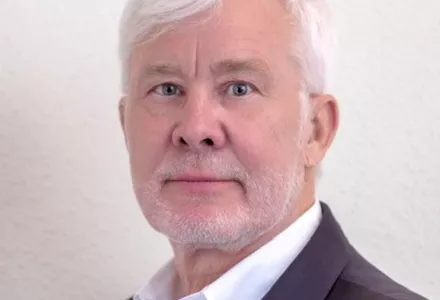Responding Effectively to Unprecedented Threats: Lessons from 9/11
The Intelligence Project will host a lunch with Rolf Mowawtt-Larssen from 12:00-1:15pm in One Brattle 350.
Lunch will be provided on a first come, first served basis. Please RSVP.
The Intelligence Project will host a lunch with Rolf Mowawtt-Larssen from 12:00-1:15pm in One Brattle 350.
Lunch will be provided on a first come, first served basis. Please RSVP.

In the aftermath of 9/11, the United States Intelligence Community had to reorganize in order to address an unprecedented threat from global terrorism. A large-scale strategic terrorist attack on the US homeland forced the IC to rethink their mission, restructure their operating principles, and re-prioritize their threat assessments.
From 2001 to 2008, Rolf Mowatt-Larssen led the government's efforts to prevent a nuclear terrorist attack on the United States. Recounting his experieces during this time, Rolf will examine how the intelligence community shifted their operations to prevent the WMD threat from non-state actors abroad.
He will cover the organizational mission, the IC's planning principles, and provide an assessment of what worked and what did not. Most importantly, he will consider the lessons that can be drawn from this experience to be applied to confront the new unprecedented threats we face today.
Rolf Mowatt-Larssen is the current Director of the Intelligence Project at the Belfer Center. Previously, he was the Director of the Office of Intelligence and Counterintelligence at the U.S. Department of Energy and former head of the Central Intelligence Agency's WMD and terrorism efforts.
As Director of Intelligence and counterintelligence with the U.S. Department of Energy, Mowatt-Larssen and his 600-person organization were responsible for the areas of nuclear terrorism, nuclear proliferation, science and technology, energy security, and counterintelligence. His office also provided support to policymakers and conducts collection and analysis, with a special focus on harnessing U.S. scientific and technological expertise to solve intractable problems. His primary focus was to prevent a nuclear terrorism attack on the United States by working to keep nuclear weapons and weapons materials out of the hands of terrorists.
When he joined the Belfer Center, Professor Graham Allison said, "Since 9/11, Rolf Mowatt-Larssen has led the government's efforts to find and track potential nuclear terrorists and to prevent a nuclear terrorist attack on the U.S. Over a career of almost three decades in the intelligence community and at the Department of Energy, Rolf has likely learned more about the plans and potentials of al-Qaeda and other terrorist groups seeking to mount catastrophic terrorist attacks on the U.S. than anyone I know. He is deeply committed to preventing nuclear attacks and restoring a global order that will make that possible. We are extremely pleased to have him join our nuclear team."
In testimony presented to the Homeland Security and Governmental Affairs Committee of the U.S. Senate in April 2008, Mowatt-Larssen said he believed the world would be tested during the early years of the 21st century "in our ability to prevent non-state efforts to develop and detonate a nuclear weapon." He added: "...we must get nuclear materials off the black market and take every possible step to stop global trafficking in these materials. It must be a global effort incorporating police, intelligence services, militaries, government agencies and ministries, and dedicated citizens across the world. In addition, we need broad information sharing across every front -- between government and private sector, and among foreign partners, including those who previously were our adversaries. Al-Qa'ida thinks and plans dynamically and they rarely follow straight-forward, linear paths to their targets. We need to be just as flexible and dynamic in our efforts to stop them."
Prior to his appointment to the top intelligence position in the Department of Energy, Mowatt-Larssen served for 23 years as a CIA intelligence officer in various domestic and international posts. These included deputy associate director of Central Intelligence for Military Support, chief of the Weapons of Mass Destruction Department, Counterterrorism Center, and most recently chief of the Europe Division in the Directorate of Operations. His overseas assignments included service in Moscow, Stockholm, Athens, Zurich, and Oslo, among others. A graduate of the U.S. Military Academy at West Point, Mowatt-Larssen is the recipient of a number of awards including the CIA Director's Award, Distinguished Career Intelligence Medal, Commendation Medal, and Secretary of Defense Civilian Distinguished Service Medal.
Washington Post columnist David Ignatius wrote in October 2007 (in "Portents of a Nuclear Al-Qaeda"), "He [Rolf Mowatt-Larssen] is convinced that al-Qaeda is trying to acquire a nuclear bomb that will leave the ultimate terrorist signature -- a mushroom cloud.....[I]t's worth listening to his warnings -- not because they induce more numbing paralysis but because they might stir sensible people to take actions that could detect and stop an attack."
Mowatt-Larssen's work to prevent a nuclear terrorist attack on the U.S. also is highlighted in Ron Suskind's recent book The Way of the World.